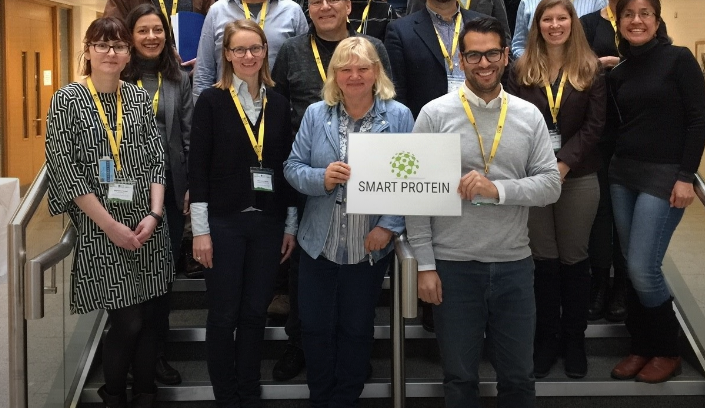Inside BENEO’s new pulse plant: pioneering sustainable protein from faba beans
Innovative new protein foods to be made from plants, fungi, and byproducts
A groundbreaking new EU project to develop new alternative proteins will launch in January 2020.
A range of highly innovative new-protein foods made from plants, fungi, byproducts, and residues will soon emerge from Smart Protein, a new Horizon 2020 project funded by the European Commission.
A primary aim of the project is to help build a future-proof protein supply by creating sustainable and nutritious alternative proteins. This is in direct response to some of the most urgent challenges faced by the planet, including climate change and global food security.
It is expected that the first wave of products – including plant-based meats, fish, seafood, cheese, infant formula, and other dairy products, as well as baked goods – will go to market in or around 2025.
Emanuele Zannini, Senior Research Officer with the University of Cork and the Lead Coordinator of Smart Protein, said: “With the Smart Protein project, we are reconsidering the entire protein value chain from production to consumption in terms of both productive and environmental performance. We are also targeting soil-health restoration through organic regenerative agriculture practices that are able to shift from carbon-source to carbon-sink agriculture, which is more resilient to the effects of climate change and helps farmers’ long-term financial futures.”
A total of 33 partners from industry, research, and academia across 21 different countries, will collaborate on the project, which is led by the School of Food and Nutritional Sciences at University College Cork in Ireland. Major collaborators include Fraunhofer, the University of Copenhagen, ProVeg International, Barilla, Thai Union and AB InBev.
Smart Protein has a total budget of €9.6 million, €8.2 million of which is provided by the European Commission. It will run for four years from 1 January 2020.

